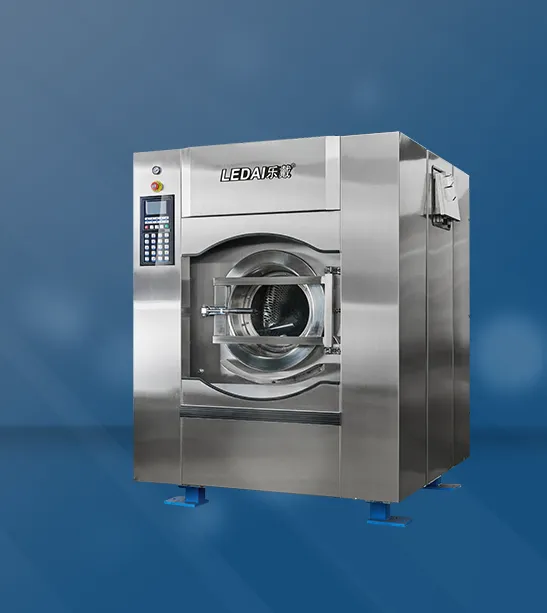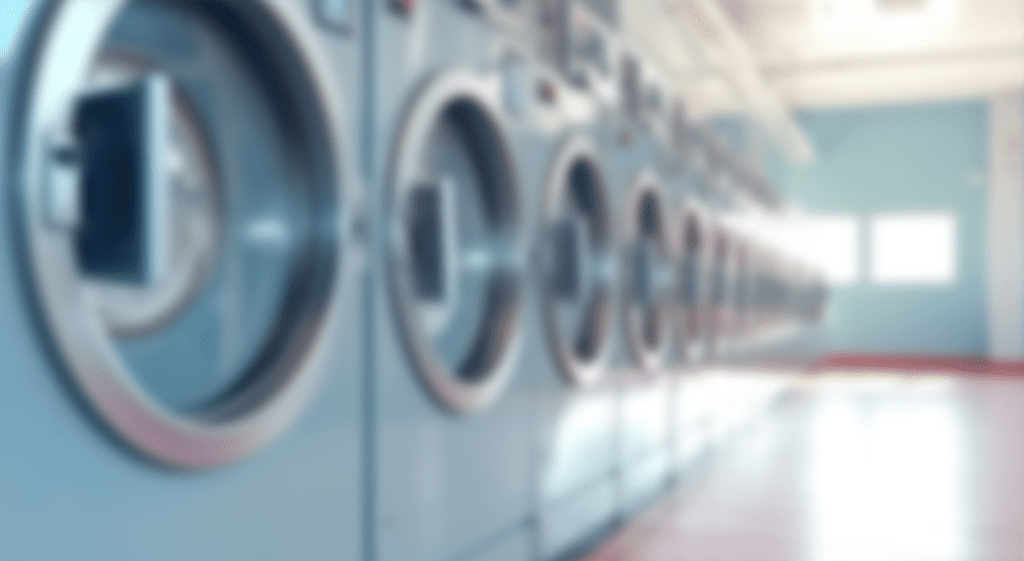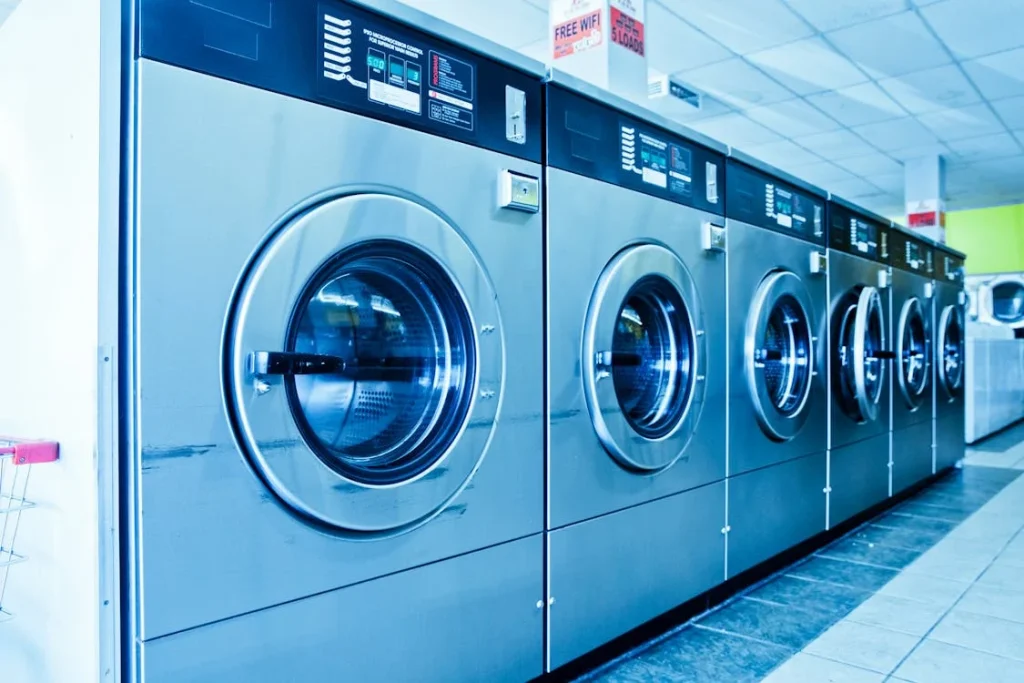When it comes to industrial laundry, the choice of machinery can significantly impact your operational efficiency, costs, and even the quality of the laundry. Whether you’re running a hotel, hospital, or laundry service, choosing between a wash extractor and a centrifugal washer can be daunting. But don’t worry! By the end of this article, you’ll be equipped with all the knowledge you need to make the best decision for your business.
Table of Contents
- 1. What is a Wash Extractor?
- 2. What is a Centrifugal Washer?
- 3. Wash Extractor vs Centrifugal Washer: Key Differences
- 4. Which Washer is Right for Your Business?
- 5. How Wash Extractors and Centrifugal Washers Affect Laundry Quality
- 6. Maintenance and Lifespan
- 7. Conclusion: Final Thoughts on Choosing the Right Washer
- 8. FAQs

If you’re looking for more info about industrial laundry solutions, feel free to explore our industrial laundry and contact us for tailored advice.
1. What is a Wash Extractor?
A wash extractor is a type of industrial washing machine that combines washing and water extraction in a single unit. These machines use a rotating drum to agitate laundry, then extract excess water through centrifugal force. This extraction phase helps reduce the amount of moisture left in the fabrics, leading to faster drying times.
1.1. Key Features of Wash Extractors
Wash extractors come equipped with a range of features designed to maximize performance and energy efficiency:
- Capacity: Wash extractors are available in various sizes, from smaller units suitable for lighter loads to larger machines that can handle industrial-scale operations.
- Cycle Time: These machines typically have adjustable cycle times, allowing businesses to tailor the washing process to their specific needs.
- Energy Efficiency: Modern wash extractors are designed with energy-saving technology, helping reduce operational costs.
1.2. Advantages of Wash Extractors
There are several benefits to choosing a wash extractor:
- High Water Extraction Efficiency: The water extraction capability of these machines reduces moisture, leading to lower drying costs.
- Quality Washes: Wash extractors are known for providing thorough cleaning, especially when dealing with delicate fabrics.
- Durability: Built to last, these machines often require less maintenance than other types of washers, making them a reliable investment.
2. What is a Centrifugal Washer?
On the other hand, a centrifugal washer uses centrifugal force to remove water from fabrics after washing. These machines typically feature a high-speed spin cycle that extracts water, leaving clothes damp rather than soaking wet. Unlike wash extractors, centrifugal washers usually focus on the drying process rather than the washing.
2.1. Key Features of Centrifugal Washers
Centrifugal washers are designed for quick water extraction. Here’s a breakdown of what you can expect:
- Spin Speed: The higher the spin speed, the more water the washer can extract from the load.
- Water Extraction Capabilities: These washers excel in removing water quickly, reducing the time fabrics need to spend in drying machines.
- Design Simplicity: Generally, centrifugal washers have fewer moving parts than wash extractors, making them less complex and sometimes easier to maintain.
2.2. Benefits of Centrifugal Washers
- Faster Drying: Due to the high-speed spin, fabrics come out with much less water content, meaning they can go into the dryer for a shorter period.
- Cost Efficiency: Because of their high extraction power, these washers can help reduce energy usage during the drying process.
- Less Wear and Tear: By removing more water in the wash cycle, fabrics undergo less stress during the drying phase, which can extend their lifespan.
3. Wash Extractor vs Centrifugal Washer: Key Differences
Now that we’ve covered both washers, let’s dive into the key differences.
3.1. Water Extraction Efficiency
While both washers extract water, wash extractors typically perform better in this area. The centrifugal force used by wash extractors ensures that a greater percentage of water is removed from the laundry, reducing the drying time significantly. Centrifugal washers, though fast, might not always extract as much water as efficiently as a wash extractor.
3.2. Energy Consumption
In terms of energy usage, wash extractors often consume more energy during the washing cycle due to their agitation and water extraction phases. However, the reduction in drying time can balance this out. Centrifugal washers, with their focus on high-speed spinning, are typically more energy-efficient during the drying phase, as they reduce the moisture content before the drying cycle.
3.3. Cost Considerations
Wash extractors tend to have a higher upfront cost due to their dual-purpose functionality (washing and extraction). However, they may save money in the long run by reducing drying costs. On the other hand, centrifugal washers are generally more affordable but may lead to higher energy costs for drying.
3.4. Speed and Cycle Times
Centrifugal washers have the advantage in terms of speed. Their quick spin cycles mean faster water extraction, reducing the time needed for drying. However, wash extractors offer more control over the wash cycle, making them better suited for delicate or heavily soiled fabrics.
4. Which Washer is Right for Your Business?
The right choice depends on several factors, including your laundry volume, the types of fabrics you work with, and your operational budget.
4.1. Factors to Consider Before Choosing
- Load Size: If you have a high volume of laundry, a wash extractor might be the better option due to its ability to handle larger loads efficiently.
- Type of Fabrics: Delicate fabrics may benefit from the gentler action of a wash extractor, while rugged textiles might do well in a centrifugal washer.
- Drying Needs: If drying time is critical for your business, a centrifugal washer’s ability to extract more water could be a game-changer.
4.2. Industry Examples
- Hotels and Hospitality: Hotels with heavy laundry loads may prefer wash extractors for their versatility in handling large volumes of bedding and linens.
- Healthcare Facilities: Hospitals may opt for wash extractors to ensure the highest cleanliness and hygiene standards for scrubs and linens.
- Laundry Services: Third-party laundry services might lean toward centrifugal washers to speed up the drying process for various types of laundry.
5. How Wash Extractors and Centrifugal Washers Affect Laundry Quality
Your choice of washer can directly impact the quality of your laundry services.
5.1. Impact on Fabric Lifespan
Wash extractors tend to be gentler on fabrics, preserving their longevity. Centrifugal washers, while effective at extracting moisture, may cause more wear and tear on delicate fabrics due to their high-speed spin cycles.
5.2. Cleanliness and Hygiene
Both washers offer excellent hygiene results, but wash extractors may have the edge due to their more thorough washing action. The reduced moisture content in centrifugal washer cycles also ensures that fabrics come out dryer and cleaner, minimizing bacterial growth.
6. Maintenance and Lifespan
Both machines require regular maintenance, but the upkeep demands vary.
6.1. Wash Extractor Maintenance
Wash extractors require more frequent checks, especially on their seals, drains, and motors. However, their longevity and fewer breakdowns in the long run make them worth the investment.
6.2. Centrifugal Washer Maintenance
Centrifugal washers generally have fewer moving parts than wash extractors, making them less prone to mechanical failures. However, it’s still crucial to keep an eye on their spin motors, bearings, and drainage systems. Regular cleaning and lubrication of the moving components can ensure the washer operates smoothly for longer.
Both machines typically require periodic inspections, especially after prolonged use, but overall, centrifugal washers may have a slightly lower maintenance cost due to their simpler design.
7. Conclusion: Final Thoughts on Choosing the Right Washer
When deciding between a wash extractor and a centrifugal washer, there are many factors to weigh. Both machines offer unique advantages, and your decision should ultimately be based on the specific needs of your business.
If you’re looking for versatility, high water extraction, and a machine that can handle delicate fabrics without sacrificing performance, a wash extractor might be the better choice. However, if your priority is faster drying times, lower energy consumption, and you’re dealing with a variety of fabrics that don’t require delicate handling, a centrifugal washer could be your best bet.
Remember, the right washer can make a big difference in your laundry operations, not just in terms of efficiency but also in the quality of service you provide to your clients. If you’re still unsure which option is right for your business, we invite you to contact us for more tailored advice and to explore our wide range of industrial laundry solutions. We’re here to help you make the best choice for your needs!
8. FAQs
1. What is the main difference between a wash extractor and a centrifugal washer?
A wash extractor combines washing and water extraction in one machine, whereas a centrifugal washer focuses on extracting water using a high-speed spin cycle after the washing process.
2. Which type of washer is better for delicate fabrics?
Wash extractors are generally better for delicate fabrics as they offer more control over the washing and extraction processes, minimizing fabric wear and tear.
3. Are centrifugal washers faster than wash extractors?
Yes, centrifugal washers are typically faster at extracting water from laundry due to their high-speed spin cycles. However, wash extractors provide more control over the entire washing process.
4. Can I use a wash extractor for smaller laundry loads?
Yes, wash extractors can be used for smaller loads, but they are more commonly employed in businesses with large laundry volumes due to their versatility.
5. How do I maintain my industrial washer?
Both wash extractors and centrifugal washers require regular maintenance, including checking seals, drains, and motors, as well as cleaning and lubricating moving parts.
Here are some other articles that we think might interest you:
Environmental Impact of Industrial Laundry


